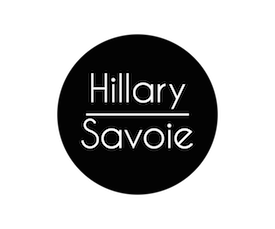I have been spending a lot of time thinking about something lately: the potential of discussions of the benefits blenderized diet (BD) tube-feeding to make those tubies among us who cannot or chose to not go the route of blenderized diets feel somehow inadequate. In reading my friend and colleague’s post on her blog, Feeding Raya, comparing this division within the tubie community to the breast versus bottle debate, I am troubled to think that within such a small community–one so in need of support and understanding–that we might be making our fellow tubies feel judged for their choices (whatever they may be) about methods of tube feeding.
Since Esmé was born I have dealt with many methods of feeding her…not one of them was expected. And each came with sharp pangs of inadequacy and sweet relief of some kind of success, whatever form it came in. Esmé has been bottle fed breast milk, bottle fed formula, tube fed formula with a pump, tube fed formula with gravity, and tube fed blenderized food with a syringe–and, I am sure, some other bizarre combinations that I can’t recall now.
I felt awful when I initially switched Ez to formula from breastmilk. I did it because she wasn’t growing and was vomiting ALL the time. I had eliminated almost everything from my diet. I was exhausted, frightened, and overwhelmed. And our doctors said it was time to try a new approach. I listened. At the time there were people who could have been supportive of this decision who were, instead, judgmental (silently or otherwise). I continued to pump and freeze, obstinately. But formula made Esmé grow. And that made me happy….right up until she aspirated and we realized that she had been tolerating aspirating my breast milk, but developed chemical pneumonia from the aspirated formula, and almost died.
That guilt was (and still is) unspeakable.
Once she came home from the hospital with a feeding tube, I was under the impression that we HAD to continue to feed her the hypoallergenic formula by tube, so I gave away most of my milk supply and mourned the remainder going bad in our freezer.
But the thing is, the formula wasn’t the right choice for Ez either. She retched constantly until we realized that she was allergic to her “hypoallergenic” formula. Yeah, I said that: allergic to her hypoallergenic formula. This hypoallergenic formula is comprised of several corn-derived items, so it is hypoallergenic, unless you are allergic to corn. This was the point at which we switched her to a blenderized diet.
You see, the blenderized diet has been a complete blessing for Esmé. It also happens that I really like it. I am not sure which came first, but I now enjoy re-evaluating the items in her blend, selecting things for her. In fact my nutritional spreadsheets give dietitians nerd-crushes on me. No lie. My husband enjoys mixing her food every evening. It has become an important ritual in our lives. I am proud of Esmé’s diet…it came out of finding a single article from Cincinnati Children’s that suggested this could help with her retching. I am proud that we asked and asked and asked until we found a (lovely, amazing, smart) doctor to help us make it happen. We fought for this for Ez, and it turned out to be a right answer for her. It greatly reduced her retching, but not before she destroyed her nissen.
I am vocal about my pride because it is not an option that is commonly offered by the average doctor, and because I think there are children who might benefit from some form of blenderized diet, but whose parents, doctors, and nurses have no idea about such a thing. BUT these diets are becoming increasingly mainstream (although whenever we are inpatient I feel like the nurses think we have four heads when we try to explain what we feed her). And as much as this was a good option for Esmé, it is important to remember that children are tube-fed because they are fragile, because their bodies work differently, because they are vulnerable. What works for Esmé is not going to work for every tubie.
All I want for my fellow tubie parents (and for all parents, really) is that they are aware of the options and are empowered to make the right decision for their family about how and what to feed their children. Furthermore, I want them to know that these decisions don’t put us on teams. This isn’t about formula or what is often called “real food.” It isn’t black and white. Needs will change. We need to be flexible, informed, and, most of all, supportive of one another.
The tubie community is full of well-informed parents, who all spend a ton of energy deciding what is best for their children to eat. (And semantics are important here: they are all “eating” and the options are all “real food” as far as I am concerned.) And I applaud each and every one of them.


Is Esmé allergic to corn or any other foods?
Yes she is allergic to corn, soy, and dairy.